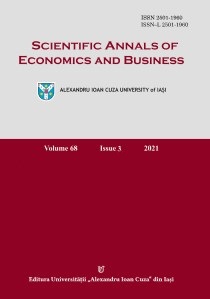Do National Cultures Impact Mortgage and Financial Well-Being Levels? Evidence from Europe
Do National Cultures Impact Mortgage and Financial Well-Being Levels? Evidence from Europe
Author(s): Rashed Isam Ashqar, Júlio LobãoSubject(s): Economy, Micro-Economics
Published by: Editura Universităţii »Alexandru Ioan Cuza« din Iaşi
Keywords: culture; Hofstede dimensions; mortgage; financial well-being; Europe;
Summary/Abstract: This study explores the influence of national culture on mortgage and financial well-being levels in the European context. The paper employs regression analysis using mainly Hofstede's cultural dimensions and the EU-SILC dataset from Eurostat to provide a better understanding of the determinants of the decision to hold secured debts and a better explanation of the states of financial well-being. To the best of our knowledge, no study has addressed the influence of culture on mortgage and financial well-being levels in the European setting using samples from different countries and controlling for household characteristics. We conclude that power distance, masculinity, uncertainty avoidance, and long-term orientation are negatively associated with the likelihood of holding a mortgage. The results also show that masculinity, uncertainty avoidance, long-term orientation, and indulgence are negatively associated with the amount of mortgage. Moreover, individualism and long-term orientation (power distance and uncertainty avoidance) are positively (negatively) associated with being in a state of financial well-being. Collectively, our research shows that national cultures play a crucial role in household finance.
Journal: Scientific Annals of Economics and Business
- Issue Year: 68/2021
- Issue No: 3
- Page Range: 263-284
- Page Count: 22
- Language: English

